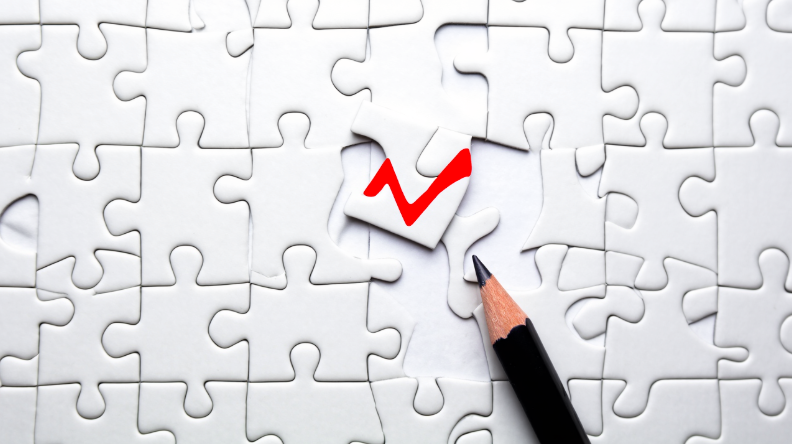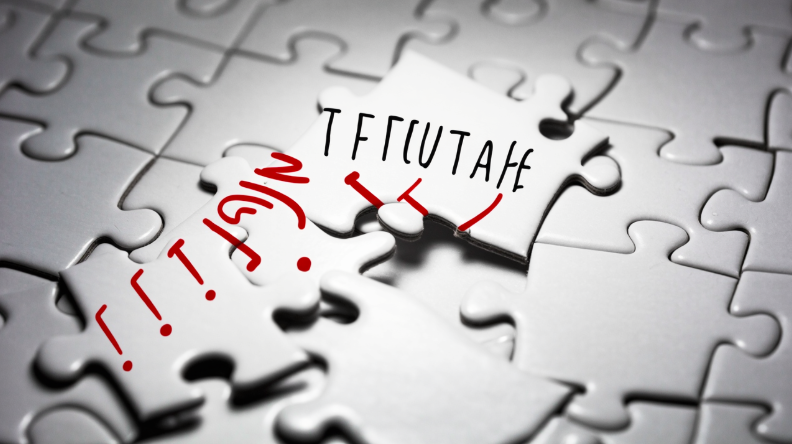What Puzzles Help With Anxiety Reduction?
Discover how puzzles like jigsaw, crosswords, and Sudoku can help reduce anxiety by promoting mindfulness and focus.
Apr 03, 202512.9K Shares227.8K Views

Puzzles are increasingly recognized as therapeutic tools for managing anxiety. They promote focus, mindfulness, and relaxation, offering a mental escape from stress and worry. In particular, anxiety-reducing puzzles in therapyhave gained attention for their ability to calm the mind and provide a structured outlet for emotional regulation. By engaging the brain in structured problem-solving, puzzles help individuals concentrate on the task at hand, reducing intrusive thoughts and fostering a calming mental state. Research has shown that puzzle-solving activities can lower cortisol levels, the hormone linked to stress, and improve mood.
The growing interest in puzzles as part of mental health strategies is supported by studies in cognitive psychology and neuroscience. For example, a 2018 study found that jigsaw puzzleshelped regulate distressing emotions and provided a "psychological time out" from stressors. This evidence highlights the potential of puzzles to complement traditional anxiety management techniques like meditation and therapy.
How Do Puzzles Help Reduce Anxiety?
Shifting Focus From Negative Thoughts
Puzzles act as cognitive distractions. When solving a puzzle, the mind focuses entirely on the task, leaving little room for anxious thoughts. This redirection of mental energy can provide relief from rumination, which is often associated with anxiety disorders.
Promoting Mindfulness
Puzzle-solving requires attention to detail and presence in the moment. This process aligns with mindfulness practices, helping individuals anchor themselves in the present rather than worrying about past or future events. Studies have shown that this mindful engagement reduces stress levels and promotes relaxation.
Providing A Sense Of Accomplishment
Completing a puzzle offers a tangible sense of achievement. Each solved piece reinforces feelings of competence and self-esteem, which are crucial for those struggling with anxiety. This incremental progress helps individuals feel more in control, countering feelings of helplessness often linked to anxiety.
Scientific Evidence
Research supports the calming effects of puzzles. For example:
- A study published in Frontiers in Psychologydemonstrated reduced stress levels after participants engaged in jigsaw puzzles.
- Puzzle play therapy has been shown to significantly lower anxiety levels in hospitalized preschool children.
Types Of Puzzles Best Suited For Anxiety Relief
Jigsaw Puzzles
- Jigsaw puzzles are highly effective for anxiety relief. The process of fitting pieces together creates a calming focus, helping to quiet anxious thoughts. Completing the puzzle provides a sense of accomplishment, which boosts mood.
- The repetitive and tactile nature of jigsaw puzzles encourages mindfulness, similar to meditation.
Crossword Puzzles
- Crossword puzzles engage the mind by challenging vocabulary and general knowledge. This mental stimulation distracts from stress and promotes relaxation.
- Filling in blank spaces can symbolize bringing order to chaos, which is comforting for individuals dealing with anxiety.
Sudoku
- Sudokupuzzles require logical thinking and concentration. These activities occupy the mind and reduce rumination, making them ideal for anxiety management.
- The structured nature of Sudoku provides a sense of predictability and control, which is soothing during stressful times.
Brain Teasers
- Brain teasers like Rubik’s Cubes or wooden puzzles offer tactile engagement and spatial challenges. The repetitive motions can be calming, while solving them boosts confidence and self-esteem.
Benefits Beyond Anxiety Reduction
Cognitive Benefits
- Puzzles improve memory by exercising recall skills, such as remembering shapes or patterns in jigsaw puzzles.
- They enhance problem-solving abilities by requiring critical thinking and strategizing.
- Regular puzzle-solving can delay cognitive decline, reducing risks of dementia or Alzheimer's disease.
Improved Focus
- Working on puzzles improves concentration by requiring sustained attention on tasks. This skill translates to better productivity in daily life.
Mood Boosting
- Solving puzzles releases dopamine, a neurotransmitter associated with pleasure. This helps elevate mood and combat feelings of stress or sadness.
- Completing puzzles also creates a sense of achievement, fostering confidence and positivity.
Sense Of Control
Puzzles Provide A Structured Challenge With Clear Goals. This Sense Of Control Can Be Comforting During Times Of Chaos Or Uncertainty
Incorporating Puzzles Into Your Daily Routine
Start Your Day With Puzzles
- Begin your morning with a short session of crossword or Sudoku puzzles. This activates your mind and sets a positive tone for the day ahead5.
- Choose simple puzzles to avoid frustration early in the day.
Create A Relaxing Evening Routine
- Use jigsaw puzzles or easy brain teasers to unwind before bed. This helps reduce stress and prepares your mind for restful sleep.
- Set up a cozy corner with good lighting to make puzzle-solving enjoyable.
Use Puzzles During Stressful Moments
- Keep portable puzzle books or apps handy for quick relief during stressful situations. These can help calm your mind when anxiety strikes unexpectedly.
Select Calming Themes
- Choose puzzle themes that evoke calmness, like nature scenes or soothing imagery in jigsaw puzzles. These visuals enhance relaxation while solving the puzzle.
FAQs
What Types Of Puzzles Are Most Effective For Reducing Anxiety?
Jigsaw puzzles, crosswords, Sudoku, and brain teasers are particularly effective because they engage the mind, promote focus, and provide a sense of accomplishment.
How Do Puzzles Promote Mindfulness And Relaxation?
Puzzles require full attention on the task at hand, anchoring the mind in the present moment. This focus creates a meditative state that helps reduce stress and anxiety.
Can Solving Puzzles Help With Other Mental Health Conditions Besides Anxiety?
Yes, puzzles can benefit individuals with PTSD, ADHD, depression, and insomnia by promoting relaxation, improving focus, and boosting mood.
Are There Specific Puzzle Themes Or Designs That Are Better For Stress Relief?
Themes like nature scenes or calming imagery in jigsaw puzzles are ideal for stress relief as they evoke peace while engaging the brain.
How Often Should I Engage In Puzzle-solving To See Mental Health Benefits?
Daily sessions of 15–30 minutes can provide noticeable mental health benefits over time. Consistency is key to improving focus and reducing stress levels.
Latest Articles
Popular Articles
